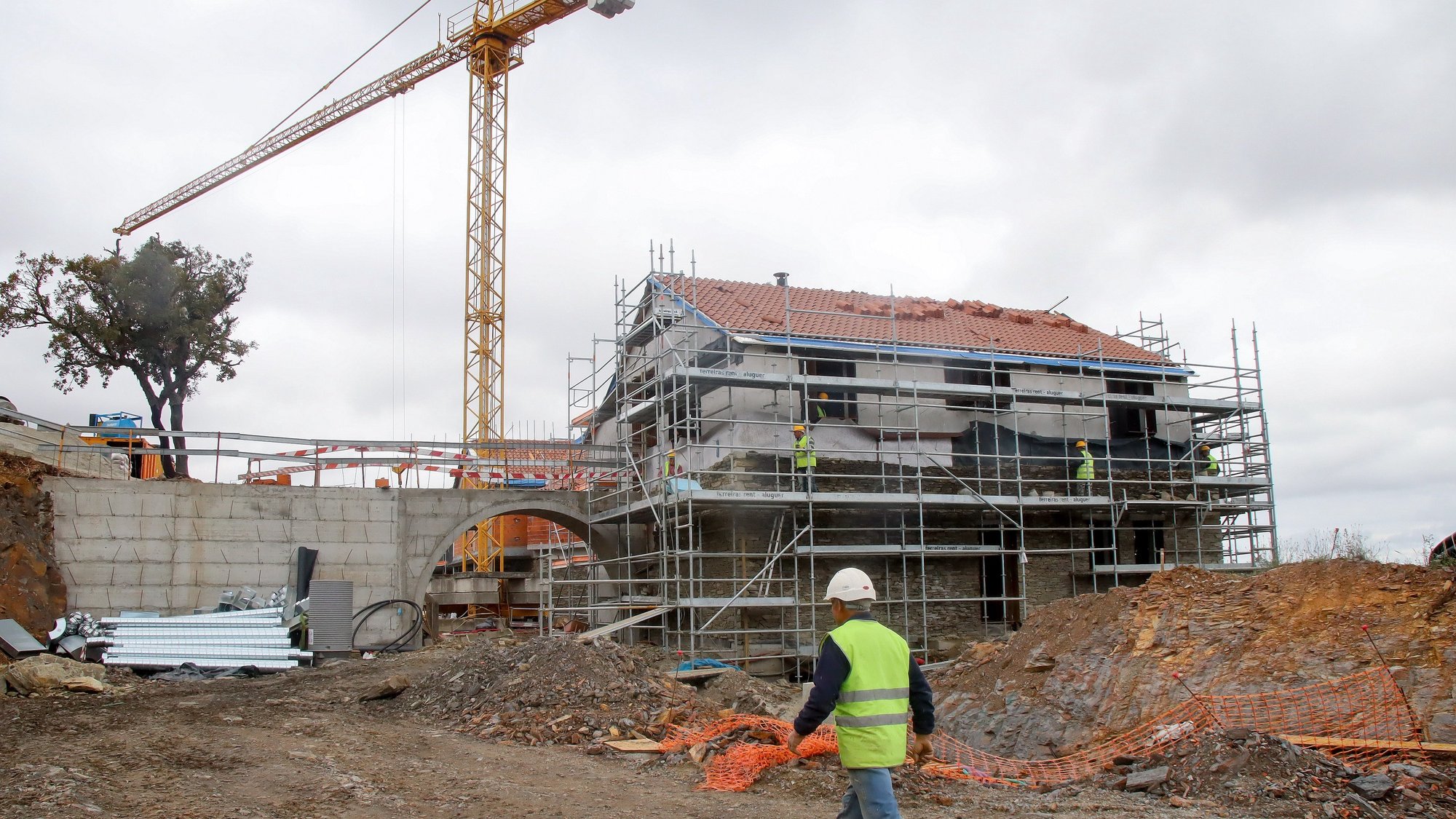The exceptional price review regime in public works contracts, in the face of rising inflation, aims to avoid ‘desert’ tenders and impacts on the execution of financial support programs, within the scope of the PRR, experts explained to Lusa .
This is the approval of the decree-law, published in the Diário da República on May 20, which establishes the exceptional and temporary regime for reviewing the prices of public contracts, specifically public works contracts, given the current context of rising inflation. .
As Gonçalo Guerra Tavares, Public Law partner at CMS Rui Pena & Arnaut, explained to Lusa, one of the interests of approving this regime is to protect the public interest, so that there are no “deserted bids” due to lack of interest. by contractors, in procedures initiated within the framework of the Recovery and Resilience Program (PRR).
“That will also be a concern, because in fact when they want to launch these tenders, they may face a lack of interest from the contractors, because they realize that they would be subject to certain prices and then there was no mechanism to protect them later,” said the lawyer.
For Gonçalo Guerra Tavares, the new exceptional and temporary mechanism is intended to prevent “desertions” in public tenders, since, without a price revision formula, for example, for raw materials, which have risen due to the escalation of inflation, contractors might not be interested in participating.
There was already the possibility of requesting a review of the economic and financial balance of a public contract and, according to the lawyer, due to the pandemic, several requests were made, not only by contractors, but also by contractors.
However, as explained by António Magalhães e Menezes, associate coordinator of Public Law at CMS Rui Pena & Arnaut, “the operators have resisted admitting some changes in the contracts, because, naturally, they make these contracts more expensive.”
“But now we find ourselves in situations in which, even from the point of view of the public entity, the work should be carried out,” said the lawyer, adding that there was, on the part of the Government, the recognition that the rise in prices it is a reality that goes beyond the power of contractors.
The new exceptional regime, which is in force until December 31 of this year, provides that, in order for there to be an extraordinary review of prices, the increase in costs must be reflected in a material that represents at least 3% of the contract price.
In addition, the revision is only possible if the price increase exceeds 20%, year after year, otherwise, the Government understands that it is at the contractor’s expense and risk.
The new law also allows the extension of the terms for the execution of the contracts, without application of sanctions, provided that the cause is the non-availability of material.
The diploma applies to any contract that is subject to public contracting rules, although the expectation of the lawyers with whom Lusa spoke is that contracts between individuals recover some of these rules, as long as there is uncertainty in prices, aggravated by the war in Ukraine.
Regarding the response of the sector to the approval of the diploma, António Magalhães e Menezes considered that “the contractors are better than they were”, taking into account that “they have hit a wall every time they talk about price increases”.
Questioned by Lusa, the president of the Portuguese Association of Purchasing and Supply (APCADEC), João Botelho, considered that the entry into force of the regime “is another challenge for buyers in particularly difficult times, due to problems of scarcity of raw materials.” ., disruptions in logistics chains and the geopolitical situation”.
The buyer’s representative considered, however, that this is “an excellent opportunity to buy in a more structured and better planned way, with better defined specifications and that reflect, for example, factors such as shorter proposal and execution terms, as well as more detailed price review mechanisms, thereby mitigating the risks associated with increased price escalation.”
The president of the Association of Civil Construction and Public Works Industrialists (AICCOPN), Manuel Reis Campos, considered that it is a measure “that the sector recognizes as positive by the Executive and the Ministry of Infrastructure and Housing”, given that, “unequivocally, the exceptional regime of ‘price review’ responds to specific questions” that the association had raised.
However, AICCOPN stressed that this is “a first step on a path that must be followed”, having already presented other measures to the Government to ensure the continuity of ongoing projects, the execution of planned investments and the protection of companies.
Among these issues are, for example, “the need to speed up the awards” and the “recovery of the Attempted Compulsory Conciliation regime”, previously provided for in the Legal Regime of Public Works Contracts and which is, in the opinion of the AICCOPN , “fully justified in the current situation”.
Source: Observadora
